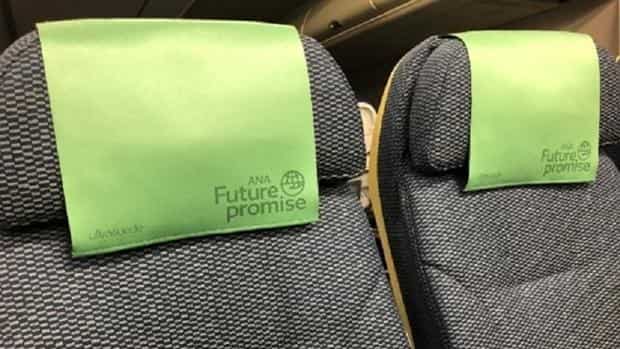Plastics-Recycling – Plant-based-PET 12-10-2022 - Arhive
Plastics-Recycling – Plant-based-PET
Crude Oil Prices Trend

Crude Oil Prices Trend Polyestertime
Plastipak, a leader in PET plastic aerosol moulding technology, has launched SprayPET Revolution, a 100% polymer aerosol, which is fully recyclable. SprayPET Revolution, including the valve, is all polymer and metal-free. Until now, PET aerosol containers used standard metal valves with rubber gaskets. Whilst many PET recycling plants are equipped to remove metal components in the recycling process, not all recyclers have this capability. Other components like rubber gaskets still cause quality concerns in the recycling stream.
Design for recyclability
Innovation in the polymer valve means that PET aerosol containers can safely pass through all PET reprocessing plants, without contaminating the recycling stream, and with no negative impact on the quality of recycled PET material. It has been assessed and approved by both the European PET Bottle Platform (EPBP) and the USA-based Association of Plastic Recyclers (APR).
The valve utilises new polymers other than PET for sealing that have a molecular density of less than 1g / cm3. This means that the valve can be easily processed with the PET container during the recycling process.
The complete SprayPET Revolution container, including the valve is shredded. The resulting flakes enter a water-filled separation chamber, where due to the differing molecular densities, PET sinks to the bottom, and the other polymers rise to the surface, so easily separated. The PET is further processed and will be reused in applications such as new PET bottles and containers, trays, textiles and pallet strapping. The polymers in the valve will be recycled alongside other caps and closures, and reused in products such as garden furniture, decking and pipes.
Produced under license from Procter & Gamble, SprayPET Revolution uses spin welding technology to attach the valve to the container. It is available as a dip-tube or bag-on-valve application.
As well as being 100% recyclable, recycled PET (rPET) can be included in the SprayPET Revolution container body.
SprayPET Revolution is claimed to offer significant carbon footprint savings over aluminium aerosol containers, as demonstrated in an independent peer-reviewed life cycle analysis study, supporting reduction in Scope 3 emissions.
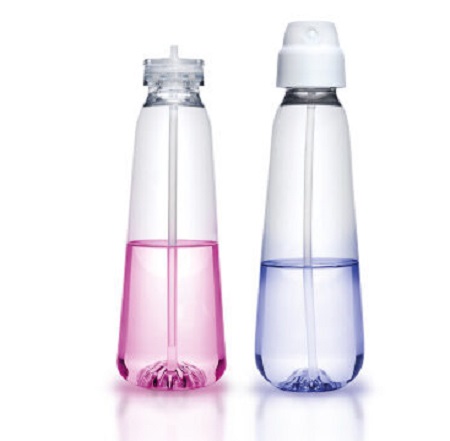
-Imports cloud looms over EU tire makers
Washington — The US Department of Commerce is recommending stiff tariffs on steel imports into the US, encouraging representatives of the domestic steel industry but alarming US tire manufacturers dependent on imported tire-grade steel cord.
Perfect storm of challenges could leave Europe open to major rise in imports from overseas car and truck tire producers
Estoril, Portugal – The EU tire industry is facing a potentially sharp rise in low-cost tire imports, adding to challenges around sky-high production costs and increasing pressure on consumer spending-power as the bloc edges towards recession.
That’s according to Robert Simmons, managing director, LMC, speaking at the International Institute of Synthetic Rubber Producers (IISRP) AGM, held 12-15 Sept in Estoril, Portugal.
Europe has already seen an increasing trend towards the import of lower-cost tires, Simmons set out in a paper titled ‘Covid-19, Inflation, and recession: The changing nature of the tire market’.
Today, he said, around half of all light vehicle (LV) tires on roads in the EU are imports, with truck tires just slightly less – a trend that is likely to accelerate with tire prices now increasing across the board.
Now, with increased fuel prices and falling income, hard-pressed EU consumers are more likely to look for cheaper tires – and not only lower quality and smaller rim-sized products
“It is not just low-quality tires anymore, it is also the more premium tires that have low price imports supporting those markets,” said Simmons.
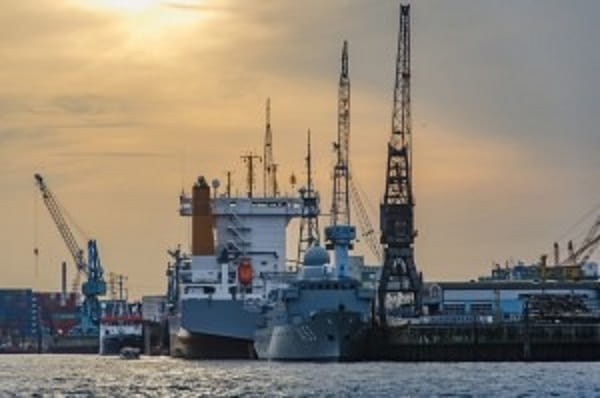
-LyondellBasell and Genox Recycling Plan to Establish Plastics Recycling Joint Venture
LyondellBasell (NYSE: LYB) and Genox Recycling today jointly announce they have signed a memorandum of understanding (MoU) to establish a joint venture (JV) to build a plastics recycling plant in Zhaoqing, Guangdong Province with a planned start up in 2023. The plastic recycling plant will use mechanical recycling technology to recycle post-consumer plastic waste and produce new polymers sold under the LyondellBasell CirculenRecover product portfolio. This JV aims to reduce the amount of plastic waste sent to landfills, incinerators or the environment, support the growing demand for circular and sustainable solutions and promote high-quality development of local recycling.
“Advancing a circular economy that enables plastic waste to be transformed into more sustainable solutions for our customers is important to us, and we are pleased to collaborate with Genox Recycling to make this happen,” said Limin Fu, vice president of LyondellBasell China Polyolefins. “This new joint venture will help develop the local plastics recycling infrastructure in China and is an important milestone for LyondellBasell to contribute to its goal to produce and market two million metric tons of recycled and renewable-based polymers annually by 2030.”
“Genox Recycling believes that innovation and collaboration are necessary ways to achieve carbon neutrality,” said Jingfa Jiang, chairman of Genox Recycling. “We are delighted to join hands with LyondellBasell to lead the development of plastics recycling with a complementary mix of strengths from both parties and accelerate a circular and low-carbon future together.”
This partnership is one of the recent initiatives LyondellBasell is taking to expand its recycling capacity globally. LyondellBasell will continue to work with partners along the value chain to enhance its local capabilities to supply circular solutions in China and contribute to the development of local circular economies.
∼∼∼∼∼∼∼∼∼∼∼∼∼∼∼∼∼∼∼∼
-Borealis and Bockatech Showcasing Ultra-Lightweight Reusable PP Cups
Use of Borealis PP and Bockatech’s EconCore next-generation foaming technology yields thin-wall, robust and fully recyclable cups.
At K 2022, Borealis and Bockatech, inventor and licensor of the innovative EcoCore plastic foaming manufacturing technology, are showcasing lightweight and ultra-lightweight reusable cups made of PP using EcoCore. These robust and fully recyclable cups represent the many thin wall and reusable packaging applications that can be developed using Borealis PP resins and the next-generation EcoCore foaming technology. Today’s ultra-lightweight cups made using Borealis PP and the EcoCore technology platform for sustainable packaging are even lighter than many conventional single-use paper cups. Yet they boast good insulation properties, with twice the thermal barrier of PP cups with solid walls of the same weight.
Durable EcoCore moldings can be microwave and dishwasher-safe. Because they are made solely of PP, they are easy to recycle once they have reached end of life after hundreds of use cycles. EcoCore produces durable, monomaterial molding walls with a composite skin-foam-skin structure in only seconds, and at low cost. When using the EcoCore and Borealis PP, converters and brand owners reportedly benefit from: up to 50% less plastic, improved recyclability of molding and injection molded labels (IML), shorter cycle times of 5-to-7 seconds, and design freedom of shapes, colors, transparency and decorating elements.
Said Borealis global commercial director consumer products Peter Voortmans, “With our partner Bockatech we’ve made unique progress in making thin wall and reusable packaging even more sustainable. The compatibility of the EcoCore platform with a variety of PP resins enhances its appeal to our customers. Our Bornewables portfolio of circular polyolefins, and our transformational Borcycle C family of chemically-recycled grades can be used as drop-in solutions for food and non-food.
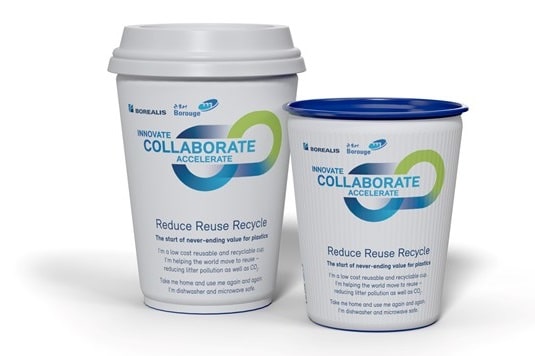
-Plastics recycling facing many battles, but major opportunities too
Despite the current gloomy macro environment for plastics recycling in Europe, this challenging period might also become a good time and and provide the opportunity to move the sustainability agenda forward.
Recycling prospects positive despite gloomy macro environment
Focused attention required on consumers, investment, legislation and data
Plastic should be part of sustainable materials mixture
New governmental policies, Extended Producer Responsibility (EPR) and Deposit Return Schemes (DRS) programmes across Europe, development of advanced mechanical (including new technologies like tray-to-tray recycling) and chemical recycling as well as other projects all offer help in finding solutions to tackle plastic waste.
This was a common theme amongst several different speakers representing the whole value chain and appeared in line with the industry’s long-term agenda at at the RECOUP Plastics Resource and Recycling Conference held in September.
CONSUMER EDUCATION
Consumers should play a critical part in the ongoing changes. This means increasing consumer awareness about their plastic waste, including why polymers with a low carbon footprint relative to other materials should be the solution, rather than a problem.
Additionally, stakeholders should invest in educating citizens on best practice for waste management, such as how to properly separate waste at source (at home), and which fractions to bring to collection points, etc.
LABELLING ISSUES
One of the pain points is still the labelling approach which often confuses the consumers when it comes to proper disposal of their waste.
There were different examples highlighted by speakers at the meeting, such as how labelling practices vary across different markets or even within one national market.
Other issues are that some icons on packaging resemble the recycling symbol but have no real connection to recyclability, and how bio- or compostable plastics are widely positioned as a sustainable alternative to fossil-fuel based material,
However, when it comes to bio- or compostable alternatives, there is almost no communication on packaging that these products should not be disposed of via household recycling bins because they normally contaminate the recycling process when mixed together with traditional plastics.
INVESTMENT DECISIONS
‘Who should pay?’ is one of the most popular questions in the recycling industry.
Predictably, there is no easy answer as any investment is determined by various factors. For example, as speakers pointed out, large producers (petrochemical companies, brand-owners, etc.) are investing in chemical recycling now, but those investments should be supported by adoption of new regulation and public support for such projects.
Recycling investments are also essentially subject to the typical chicken-egg problem in business.
To start an investment project a company should be able to secure enough feedstock to run the plant, which requires investment into collection and sorting. At the same time, to start investing into collection and sorting infrastructure, waste managers would like to make sure they will be able to find enough end-use demand before doing so.
LEGISLATION CHALLENGES
Waste management and recycling are generally expected to be strictly regulated to prevent malpractice. However, the regulation should also create further incentives for broader implementation of the waste hierarchy approach, such as through adoption of collection and recycling targets as well as mandatory recycled content requirements.
Standardisation and harmonisation are key to enabling effectiveness of policy, hence the proposed consistency agenda for collection systems in the UK.
The current regulation also needs additional review as in some instances it might be considered too restrictive, e.g., the current definitions of waste might hinder entrepreneurial activity and eventually the industry’s development.
Finding this right balance between more regulation to drive positive changes and not making this regulation too restrictive at the same time should be a priority task for the legislators.
DATA-DRIVEN DECISIONS
Do we have sufficient data available to enable the stakeholders make the right decisions? This question remains open even among recycling industry professionals.
The consensus here is that the only way to leapfrog is to make data-driven decisions at every step of the value chain. That applies not only to volumes and capacities data to ensure efficient investment, but also to the environmental footprint of virgin and recycled plastics based on life-cycle assessments (LCA).
SUSTAINABLE GROWTH
The current concept of GDP growth may no longer be appropriate for describing and measuring economic growth. Rather, growth should be decoupled from increasing resource consumption, linked to finding new sources of growth and accompanied by new circular business models.
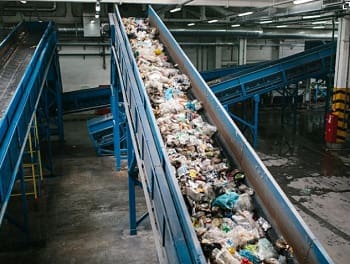
Hydrogen Europe and the Renewable Hydrogen Coalition write joint letter to EU leaders calling for revised Delegated Act as soon as possible
Two influential Brussels-based hydrogen organisations — which often do not see eye to eye — have joined forces in a plea to the European Commission to adopt a modified Delegated Act that will ensure that only new renewable energy capacity is used to produce green hydrogen and its derivatives.
Hydrogen Europe (HE) and the Renewable Hydrogen Council (RHC) have sent a joint letter to the relevant senior figures in the European Commission, Council and Parliament, calling upon them to adopt a new Delegated Act with an additionality principle as soon as possible — weeks after HE campaigned against a previous version proposed by the European Commission.
“There will be no investments if offtakers cannot claim their hydrogen as fully ‘renewable’,” says the letter. “We call on the EU institutions to forge a compromise that protects the integrity of renewable hydrogen with robust rules…”
The earlier version of the Delegated Act called upon green hydrogen developers to prove the source of their renewable power on an hour-by-hour basis, which Hydrogen Europe argued would have made green H2 production “impossible”.
And the European Parliament agreed — rejecting and therefore vetoing the proposed Delegated Act on 14 September.
This led to criticisms that existing renewable energy capacity could therefore be “cannibalised” to produce green hydrogen, thus reducing the amount of clean electricity on Europe’s grids.
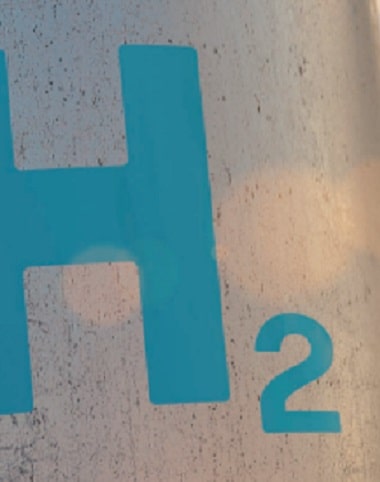
-International symposium on biopolymers – ISBP2022
The 18th edition of the International Symposium on Biopolymers (ISBP), organized by the University of Applied Sciences Western Switzerland (HES-SO) and the University of Stuttgart, took place in Sion at the Energypolis Campus from September 13 to 16. The event attracted more than 160 researchers, industry experts and start-ups from around the world to share their knowledge and the latest innovations and discoveries in the field of bioplastics.
ISBP2022 highlighted current research areas on biopolymers, i.e. polymers derived from biomass and/or biodegradable. Some of the most common ones are polyhydroxyalkanoates (PHA), cellulose, starch and other polysaccharides, used in many industrial sectors such as medicine, cosmetics, packaging or food. In recent years, billions of dollars have been invested in the development and implementation of solutions to produce large quantities of these natural PHA materials on an industrial scale, relying heavily on their biodegradability as an advantage.
More than 95 lectures on biosynthesis, innovation in fermentation technology, the use of biopolymers in drug delivery, cosmetics, packaging and sustainable textiles, as well as biodegradation and recycling of biopolymers will be on the program during the four days.
For Professor Manfred Zinn of the University of Applied Sciences in Sion and organizer of the event, the outcome is very positive. “Participants from 29 nations were able to exchange and learn about the latest developments that are important for the future of biopolymers, such as the use of waste products, like CO2, for their production. During this symposium, it was shown that there are many possibilities to modify the properties of these polymers, which allows to determine their elasticity and strength, and which opens new windows of application, and that is something new.”
∼∼∼∼∼∼∼∼∼∼∼∼∼∼∼∼∼∼∼∼
-100% plant-based PET for headrest covers
A new variety of nonwovens which partially consist of 100% plant-based polyester (PET) has been developed by Toray. All Nippon Airways Co., Ltd. (ANA), Tokyo/Japan, will adopt this developed material to the headrest covers in ANA Green Jet, a special aircraft from November 2022.
Ultrasuede nu is a nonwovens material for a genuine leather appearance with a base material of Ultrasuede and a special resin treatment applied to its surface.
The latest developed by Toray Industries, Inc., Tokyo, is the first Ultrasuede product which partially consists of 100% plant-based PET for the ultra-fine fibers on the surface of the base material. In addition, about 30% plant-based polyurethane (PU) is used inside of the nonwovens structure, and about 30% plant-based polyester is used in the reinforcement fabric called scrim, making this developed product the highest level of plant-based raw material content for the nonwovens material for a genuine leather appearance.
Toray is developing 100% plant-derived polyesters in line with efforts to make its mainline polymers bio-based to help materialize a carbon-neutral, circular economy that does not depend on fossil resources. The new material is light with comfortable breathability and is environmentally conscious non-animal (vegan) product.
